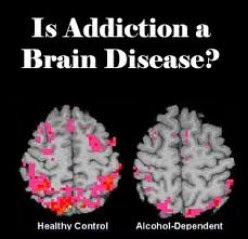 Neuroscientists at the University of California, Berkeley, have discovered that the orbitofrontal and anterior cingulate cortex in the frontal brain regulates our choices that can result in addictive and compulsive behavior.
Neuroscientists at the University of California, Berkeley, have discovered that the orbitofrontal and anterior cingulate cortex in the frontal brain regulates our choices that can result in addictive and compulsive behavior.
Jonathan Wallis, associate professor of psychology and neuroscience at UC Berkeley and the principal investigator of the study researched the phenomenon in which addicts go to any length to fulfill their cravings, despite any negative consequences to health, relationships, finances etc.
“In the new study, he and fellow researchers targeted the orbitofrontal cortex and anterior cingulate cortex — two areas in the frontal brain — because previous research has shown that patients with damage to these areas of the brain are impaired in the choices they make. While these individuals may appear perfectly normal on the surface, they routinely make decisions that create chaos in their lives. A similar dynamic has been observed in chronic drug addicts, alcoholics and people with obsessive-compulsive tendencies.”
To study these areas, researchers measured the neural activity of macaque monkeys as their decision making processes are similar to that found in the human brain. The monkeys had to indentify certain pictures that would result in the delivery of juice. They quickly learned to choose the pictures that would most frequently deliver the greatest amount.
“This is the first study to pin down the calculations made by these two specific parts of the brain that underlie healthy decision-making,” Wallis said.
Results demonstrated that the orbitofrontal cortex regulates our ability to differentiate and make decisions on both important and minute matters. However, the neural activity does not change based on the importance of a decision for those with damage to the orbitofrontal cortex.
Furthermore, the anterior cingulate cortex allows us to make future decisions based on whether our past decisions matched our expected outcome. When this part of the brain is not functioning normally, those signals are missing and people continue to make the same poor choices again and again.
“This research is an important contribution to understanding how the disease works. The challenge going forward is to sharpen our understanding, translate this knowledge into effective medical treatments and new prevention strategies and ultimately find a cure for this disease.”
Findings Offer New Clues Into the Addicted Brain
© www.understandingaddictions.com
SOURCE: Understanding Addictions – Read entire story here.




